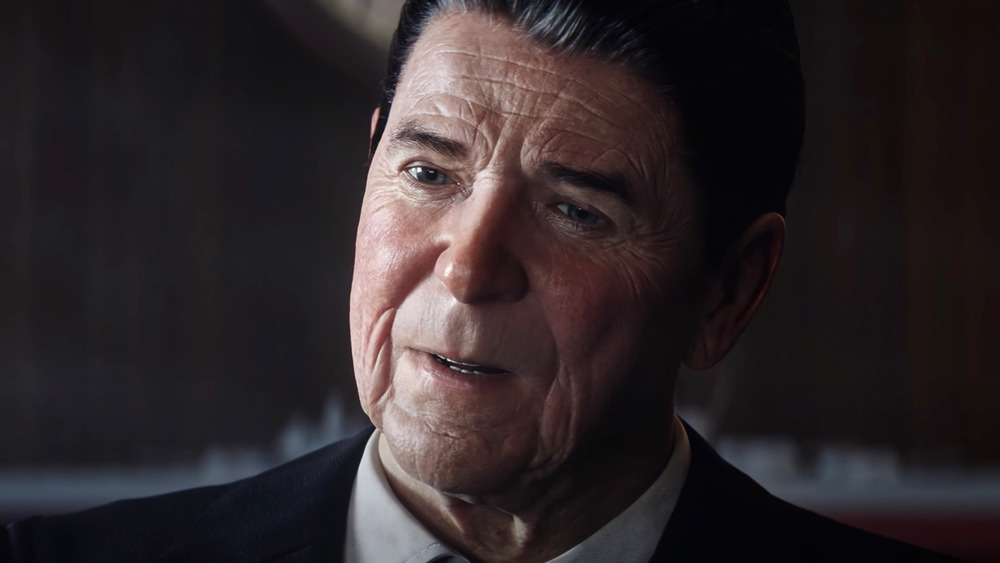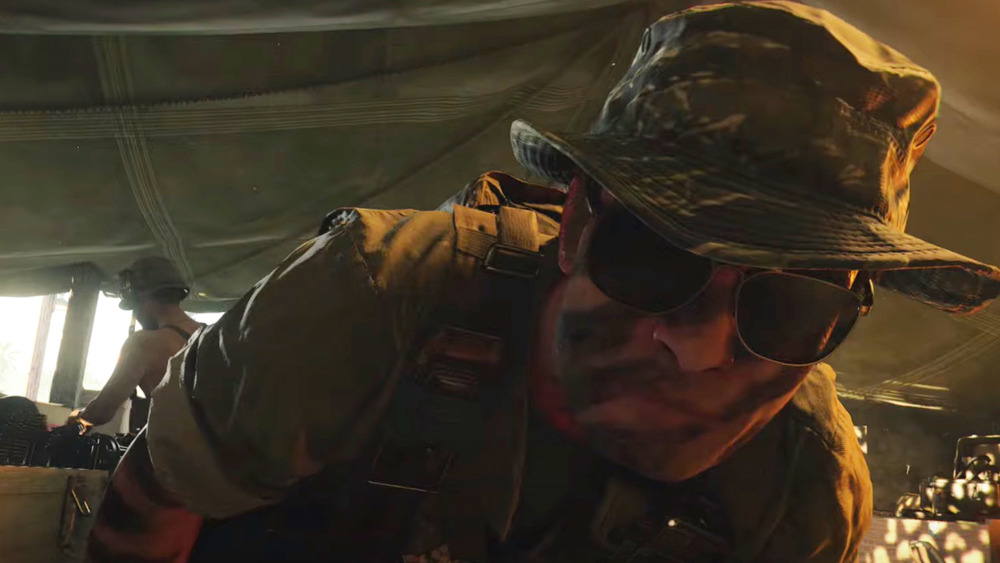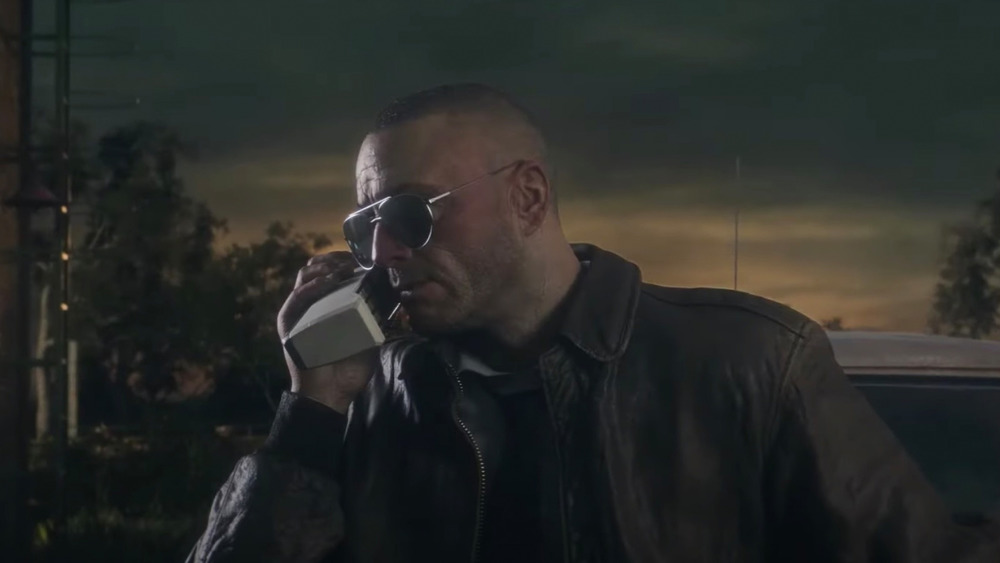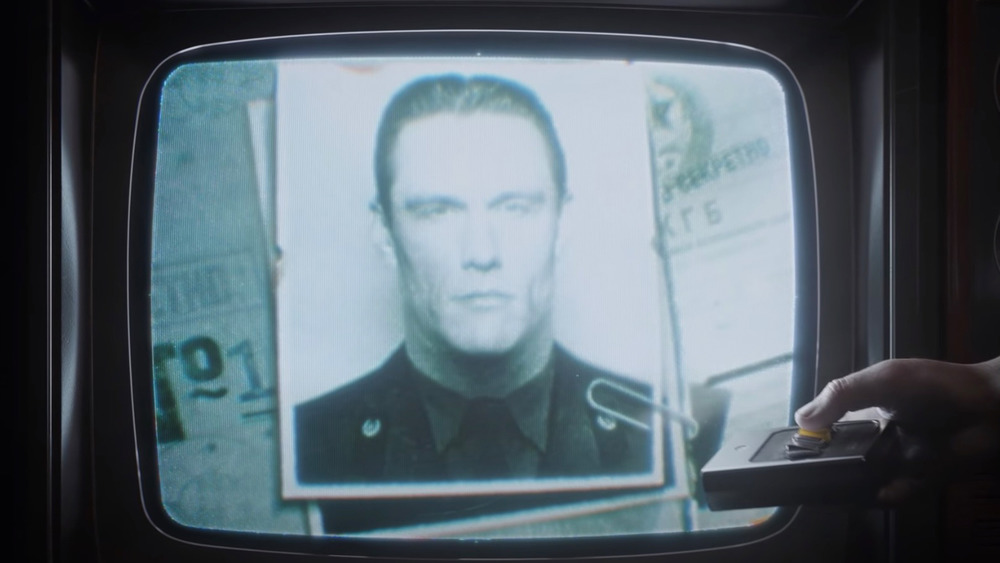Things That Were Historically Incorrect In Black Ops - Cold War
Even though many games in the Call of Duty franchise are set during historical wars, it shouldn't surprise you to learn that they take liberties with the truth. And Call of Duty Black Ops: Cold War is no different. The game's main character, Alex Russell, is fictional, so obviously President Ronald Reagan never personally directed him on covert operations like he does in the game.
To be fair, not everything in the game is made-up. The game is inspired by real-life events, and versions of major plot elements from the game did happen in real life, even if some of them sound far-fetched. The Soviets actually did infiltrate the Manhattan Project with at least three spies, for example. In other cases, the game took top secret plans that didn't get past the planning stage and presented them as if they did.
What's fact and what's fiction in Call of Duty: Black Ops? Here are three things that didn't happen, at least not like the game says they did.
The U.S. didn't actually station nukes in South Vietnam
An early mission is based on the memories of Agents Adler and Bell, who first worked together in South Vietnam in 1968. During the mission, the player has to recover a nuclear weapon that the Viet Cong stole from the Americans. It's a short-range nuke the Americans had stationed near the battlefield before it fell into the wrong hands.
The United States didn't actually bring nuclear weapons to Vietnam like this, but the game's mission isn't totally outlandish, either. It's based on a top-secret operation code-named "Fracture Jaw." According to recently declassified documents, in 1968, General William Westmoreland developed a contingency plan to have nuclear bombs on hand to support troops should they lose the important Battle of Khe Sanh.
The United States had considered using nuclear weapons at various times after the bombings of Hiroshima and Nagasaki. But President Johnson was worried that nukes would turn Vietnam into another global conflict. Once the White House caught wind of Westmoreland's scheme, LBJ nixed it.
The U.S. also didn't plant neutron bombs under allied cities
In a later mission, the game's antagonist, the Soviet spy Perseus, has hacked the detonation codes for a series of American neutron bombs buried under European cities and plans to detonate them. The Americans originally planted the bombs as part of a project called Operation Greenlight. This was another American contingency: In the event of a Soviet invasion of Europe, these bombs could be used to destroy Soviet-occupied cities as part of a scorched-earth plan.
Operation Greenlight is fictional, but it's based on America's use of "Green Light teams" during the Cold War. These were cells of special forces personnel who were given small tactical nuclear bombs called "B-54 Special Atomic Demolition Munitions," or "backpack nukes." Green Light teams were deployed in Warsaw Pact countries and instructed to blend in with the local population. In the event of a Soviet invasion, they were supposed to sneak behind enemy lines and detonate their bombs.
The Americans went as far as actually deploying Green Light teams throughout Europe. The existence of the plan came to light in 1984, and the U.S. had recalled all operatives and their bombs by 1989.
Perseus (probably) wasn't a real person
The game's antagonist is Perseus, a Soviet intelligence officer who runs a network of shadowy operatives also using the code name "Perseus," which also has ties to various worldwide criminal and terrorist organizations. His goal is to subvert American domination of the world by any means possible — like detonating America's top-secret neutron bombs and kicking off another war.
Perseus is actually based on a real hypothetical Soviet spy. In the 1990s, a former KGB colonel named Vladimir Chikov claimed that the Soviets had infiltrated the Manhattan Project with a fourth previously unknown agent, code-named "Perseus," and that Perseus had stolen American secrets. But other former Soviet officials claimed Chikov was lying, and Perseus' identity has never been proven. And if Perseus did exist, he would have been a nuclear physicist with Soviet sympathies, not a badass Soviet spy who menaced American black ops operatives for decades. Not exactly supervillain material.




